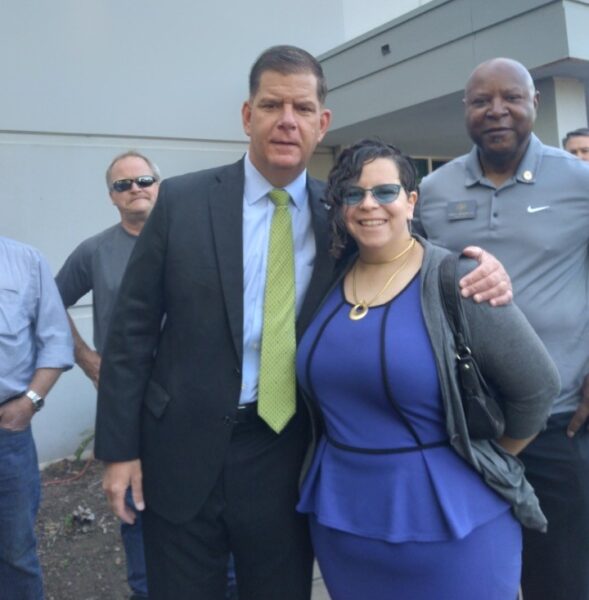Tradeswomen Advocate Leslie Cotton Pushes for Equity

The first step to affecting change is by raising awareness: nothing can change if people don’t know about the issues! The tradeswomen movement has been around for decades, but with historically low numbers of women in the trades, it has been an uphill battle to gain visibility of this mission with our leaders, but times are changing.
The tradeswomen movement is more than just changing the idea that women can work in construction. It’s about ensuring jobsites are welcoming to women, creating debt-free pathways to employment, and reducing barriers to accessing these careers such as affordable childcare or reliable transportation. While Oregon Tradeswomen has been helping women find success in the trades since 1989, we need the awareness and support of our leaders to set up better systems to continue training and retaining diverse, skilled workers in the face of a huge labor shortage.
The Biden Administration passed the new Bipartisan Infrastructure Bill giving long-overdue funding to repair, rebuild, and improve upon the United States’ aging infrastructure. In addition to the roads and bridges associated with infrastructure, these funds will invest in the workers needed to achieve these goals. This means expanding apprenticeship and pre-apprenticeship training, addressing workplace harassment and discrimination, and ensuring women and people of color are included in this monumental overhaul of our nation’s infrastructure.
From the inception of the bill, our leaders have shown their commitment to listening to the voices of tradesworkers to make this plan equitable and effective. As part of a Memorandum of Understanding (MOU) between the U.S. Department of Labor and the U.S. Department of Transportation, a virtual Town Hall was held on March 7th, 2022 to hear from a panel of workers around equitable job creation, job quality, labor standards, and workforce development. One of these panelists was Leslie Cotton, an Oregon Tradeswomen graduate and Union plumber with UA Local 290. Leslie has been a vocal advocate for women and people of color in the trades and had the opportunity to speak directly with Labor Secretary Marty Walsh on the importance of access to job-training for rural Americans, and safe, healthy workplaces.
Leslie shared her story as the daughter of a single father in rural Washington who struggled, like many others in their small community, to find work that could support his family. Seeing her father work day-and-night to provide for Leslie and her disabled brother drives Leslie’s activism because she knows her family is not alone in this experience. When her father got sick, Leslie was faced with the responsibility to provide for her family and, with the job-training she received at Oregon Tradeswomen, she found the ability to do so in the trades.
Even though Leslie worked hard to build her career, as a woman and a person of color, she faced her share of obstacles. Men on the job would belittle her because they just saw her as a “diversity hire,” and not a fellow trades-worker. She even came to work one day to find a noose on her jobsite, a racist symbol that is now illegal to display in the State of Oregon. These experiences are not uncommon and by speaking up, Leslie is letting our leaders know that more must be done to ensure workplaces free of harassment, hazing, and discrimination.
With the input of trades-workers like Leslie, our movement has more visibility than ever. As a result, we are seeing a new commitment from policy-makers to invest in systems centered in equity. We look forward to following the implementation of the Infrastructure Bill and the impact on our industry. Everyone deserves to work meaningful, family-supporting jobs and we believe we are at the precipice of real change for workers everywhere.